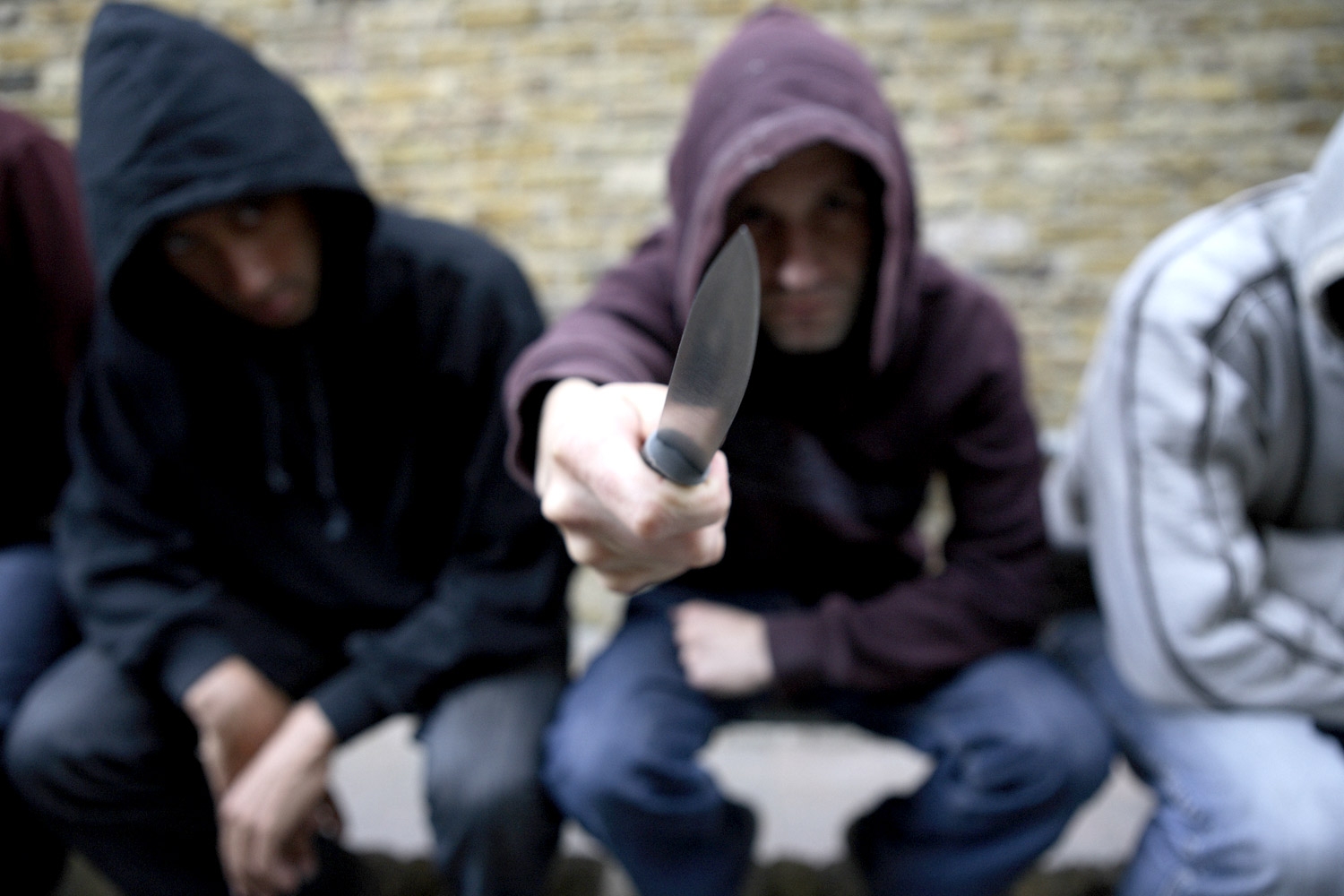
 Gangs, Guns...and 13 year olds!
Gangs, Guns...and 13 year olds!
Sunday 12th March 2017 | Sion
Gang related crimes plagues most major cities in the UK, with London having a brutal history of gangs who continue to leave a trail of bodies, and fearful teenagers too afraid to walk in their own neighbourhoods.
A children's social worker from the Islington borough (who prefers to stay unnamed) expresses her concerns. “We work with both victims and offenders as young as 13” she explained. “We often get reports on cases of stabbings and weapons and drug possessions.”
Despite Boris Johnson’s gang exit scheme which rolled out in February last year, Islington has had a steady stream of gang related attacks and arrests.
In most cases adults only deal with petty crimes such as phone snatching.
But adolescents and young adults have to deal with gang-on-gang violence, the risk of getting beaten or stabbed for simply walking in the wrong areas, or being recruited into a gang. Which can lead them down a path filled with guns, drugs and petty crimes.
In February, metropolitan police reported on a Hugo Borges, a 18 year old from Islington, who was sentenced to seven years in a young offenders institute for posession of a handgun, ammunition as well as heroin and crack cocaine.
In November last year, a 17 year old was stabbed 4 times by a gang as he walked with his friends.
In September 2016, police raided 20 homes, arresting 14 people with Blaise Lewinson convicted for manslaughter, while others faced court for drug posession and conspiracy to supply class A drugs.
“Drug related cases are very complex as the danger doesn’t stop at the arrest of the gang member. There’s the outstanding debt for the drugs which are ceased, so the gang will often target the siblings and other family members to try and collect.”
As a result, many cases often result in having to relocate entire families in order to protect the children. “We recently rehoused a number of families in temporary accomodation due to being in high risk of being attacked.”
“It’s a sad thing to see, because not only does it mean the displacement of a child from their home, community and friends, they have to endure the long process of finding the place to relocate to. People can be in temporary housing for months, isolated, unable to speak about where they are to anyone, just waiting to find out where they will have to create a new life.”
All this weapon related violence and drug arrests begs an important question, where are these kids getting them from?
Apparently it is as easy as ordering food online. Last year The Guardian reported on amazon selling knives to underage children without age checks. But how do parents not find out after the package is delivered?
Also, the increase in gun possessions is especially puzzling considering the tight regulations in the UK.
In the islington borough, the two notorious gangs are the Red Pitch Gang (RPG) and the Essex Road Gang. Kids are targeted to join from a very young age and can be attacked for refusing. The RPG have even created music videos to encourage membership.
But community groups have been formed by mothers in Islington, working with authorities and encouraging families to talk to each other and keep better tabs on their children.
“Warning signs include things like the kids staying out late at night, coming home with jewellery which they can’t explain and drops in attendance.”
“It’s so difficult when there are estates where the whole place is associated with a gang. Most gang members come from troubled families but kids from regular families can be in danger just by who they know and associate with in one of these estates.”
“These kids are also so afraid of speaking out about it, because they’re afraid of what will happen, so we don’t get a lot of them opening up to us.”
To combat this trend of gangs and break the stigma of snitching, the Integrated gangs team (ITG) made up of police, children services, probation, job centre and other institutions was established to work with and get them out of gangs. By improving outcomes for offenders and victims, reducing gang membership and works to reintegrate ex-members back into society.
But aside from the structural approach of the government to combat the issue there are more responsibilities that lie with the parents.
“Parents need to be more educated on the issue. They need to know where their kids are, who they’re associated with and what they’re doing online. Spend time with them and let them know that they’re loved and try to understand what they’re going through.”
